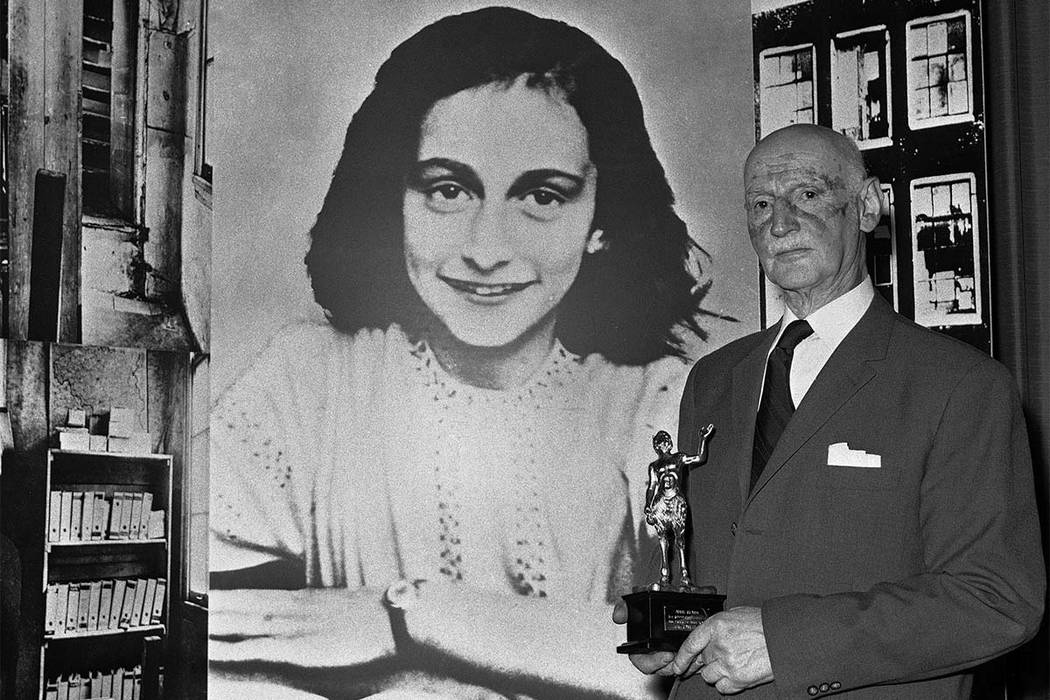Research reveals Anne Frank’s family tried to escape to US, Cuba
Anne Frank’s family tried to escape to US, hit roadblocks
BERLIN — Research suggests the family of Anne Frank, the world famous Jewish diarist who died in the Holocaust, attempted to immigrate to the United States and later also to Cuba, but their efforts were thwarted by America’s restrictive immigration policy and the outbreak of World War II.
The Anne Frank House in Amsterdam and the U.S. Holocaust Memorial Museum said Friday that documents indicate Anne’s father Otto tried twice to collect the papers needed to obtain visas for the United States. He later also appears to have applied for a visa to Cuba.
However, the Frank family’s escape efforts were all in vain. Eventually they went into hiding from the Nazis in Amsterdam on July 6, 1942 — exactly 76 years ago.
“I am forced to look out for emigration and as far as I can see USA is the only country we could go to,” Otto Frank wrote in English to a friend in the United States in 1941.
His efforts to get the family out of the Netherlands to the U.S. likely started as early as 1938 — a turbulent year in which Nazi Germany annexed Austria and part of Czechoslovakia into the Third Reich. On Nov. 9 that year, Nazis terrorized Jews throughout the country in the violent Kristallnacht pogroms, also known as the “Night of Broken Glass.”
Otto Frank wrote in his 1941 letter to his friend Nathan Straus that he had filed an application at the American consulate in the Dutch port city of Rotterdam in 1938.
However, he also mentioned that “all the papers have been destroyed there,” because on May 14, 1940, while the Frank family was still on a waiting list for possible visas, the American consulate was devastated during German bombardment and all papers were lost.
Even without the loss of their visa application, it would have been difficult for the Franks to immigrate to the United States. With hundreds of thousands of people seeking refuge in the U.S. each year by the time war broke out in 1939, Washington was issuing fewer than 30,000 annual visas.
The processing of a visa application also lasted several years and included a huge amount of paper work, affidavits from relatives or friends in the U.S. Even with all these demands fulfilled, applicants could still be turned down.
The new research focused on the paper trail, looking at documents like the affidavits of support, testimonies on character and other such items provided to the U.S. authorities in the screening process, in addition to items like birth certificates, wedding certificates, tax clearances and more.
The war further complicated any immigration efforts. A renewed attempt in 1941 to get the family to the U.S. failed because all American consulates in Germany-occupied Europe, including the Netherlands, were closed by the Nazis. A visa application to Cuba that same year also never came through.
While the Franks were not explicitly denied visas by the American consulate, “their efforts were thwarted by American bureaucracy, war and time,” the historians wrote.
“All their attempts failed, so going into hiding was their last attempt trying to get out of the hands of the Nazis,” said Annemarie Bekker from the Anne Frank House.
The family hid for more than two years during the war and it was then that Anne wrote her famous diary. On Aug. 4, 1944, they were discovered and ultimately deported to Auschwitz.
Only Anne’s father Otto survived the war. Anne and her sister died in Bergen-Belsen camp. Anne was 15.
After the war, Otto Frank had his daughter’s diary published, and it went on to become a symbol of hope and resilience that has been translated into dozens of languages.
The house where the Franks hid was turned into a museum that is one of Amsterdam’s most popular tourist attractions.

















